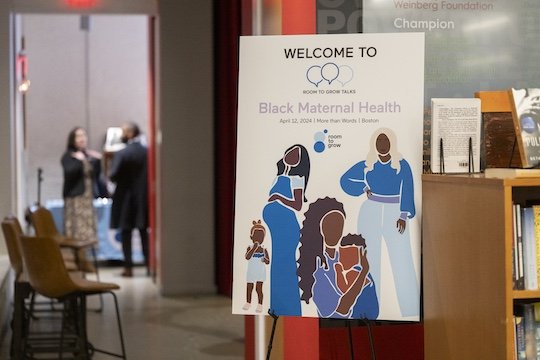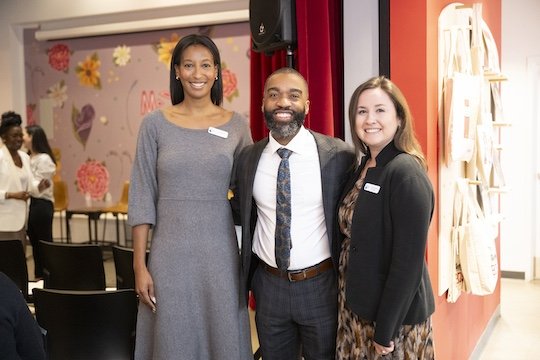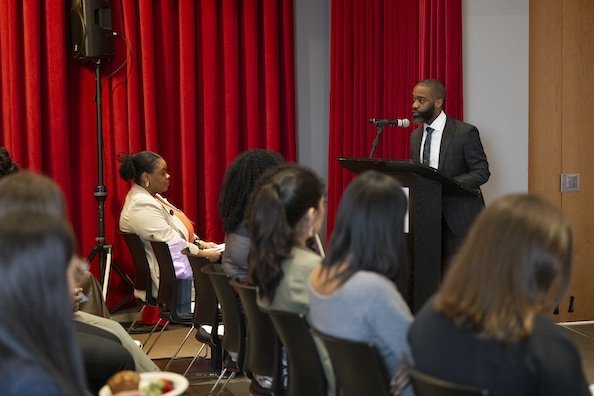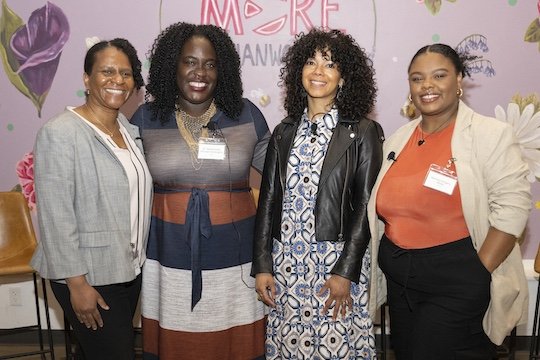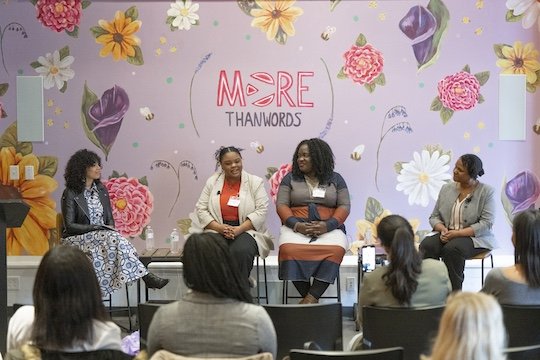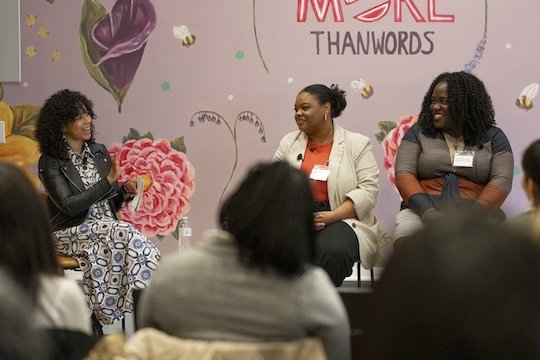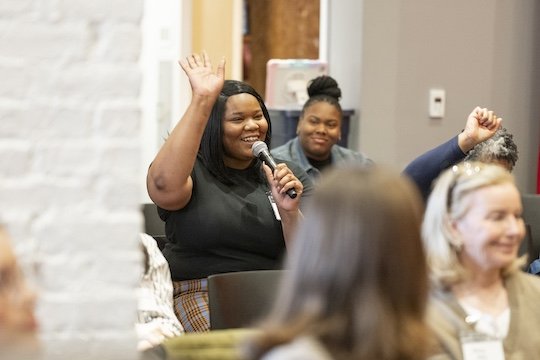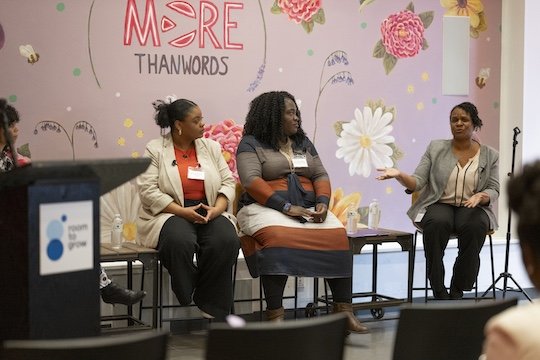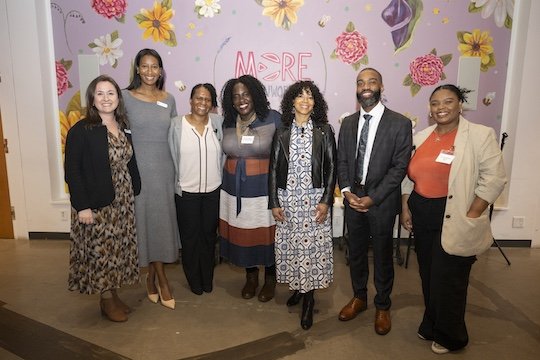Room to Grow Talks: Black Maternal Health
On April 12th, we conducted our second-annual Room to Grow Talks focusing on a vital issue: Black Maternal Health. The discussion aimed to illuminate the significant gaps and obstacles encountered by Black mothers throughout pregnancy, childbirth, and postpartum care. Our panel of experts started the discussion by acknowledging the sobering statistics that highlight the disproportionate burden Black mothers bear in maternal health outcomes. Despite living in one of the world's wealthiest nations, Black women in the United States are more than three times as likely to die from pregnancy-related complications compared to white women. These disparities persist across income and education levels, indicating systemic issues deeply rooted in racial bias and healthcare inequities.
Central to our conversation was the importance of amplifying Black voices and centering their experiences in shaping solutions. Black mothers and healthcare professionals shared their personal stories and perspectives, providing invaluable insights into the lived realities of navigating a healthcare system rife with systemic barriers and biases. In one poignant example, Dr. Ndidiamaka Amutah Onukagha shared her personal experience of being 16 and visiting a friend who had recently given birth in the hospital. Observing her friend's condition, she expressed concern, to which her friend replied feeling exceptionally fatigued. Sadly, Dr. Ndidiamaka Amutah Onukagha's friend passed away just 36 hours later at the young age of 15.
Despite the challenges, there is hope. We thank and acknowledge the tireless advocacy efforts and initiatives aimed at addressing these disparities. From grassroots organizations advocating for policy changes to healthcare providers undergoing anti-bias training, various stakeholders are working towards systemic reforms. Additionally, innovative approaches such as community-based doula programs and culturally competent care models are showing promising results in improving maternal health outcomes for Black women.
We thank our panelists for making time to address this vital issue with us:
Opening Remarks by:
Brian J Worrell, City Councilor, District 4
Panelists:
Dr. Ndidiamaka Amutah Onukagha, Founder and Director of the Center for Black Maternal Health and Reproductive Justice & Julia A. Okoro Professor of Black Maternal Health in the Department of Public Health and Community Medicine at Tufts University School of Medicine
Renee Boynton-Jarrett, MD, ScD, Associate Professor of Pediatrics & Director, Vital Village Network at Boston Medical Center/Boston University
Marissa Rogers, MSW, Perinatal Mental Health Therapist
Moderated by:
Amber Payne, Publisher & General Manager, The Emancipator
“From these stories, maternal health data, and conversations like ours today it is clear that Black Maternal morbidity and mortality does not discriminate base on age or socioeconomic class; it fundamentally stems from racism and our country’s continuous failure to prioritize the well-being and the voices of women of color.” — Akilah King, Chief Executive Officer, Room to Grow



